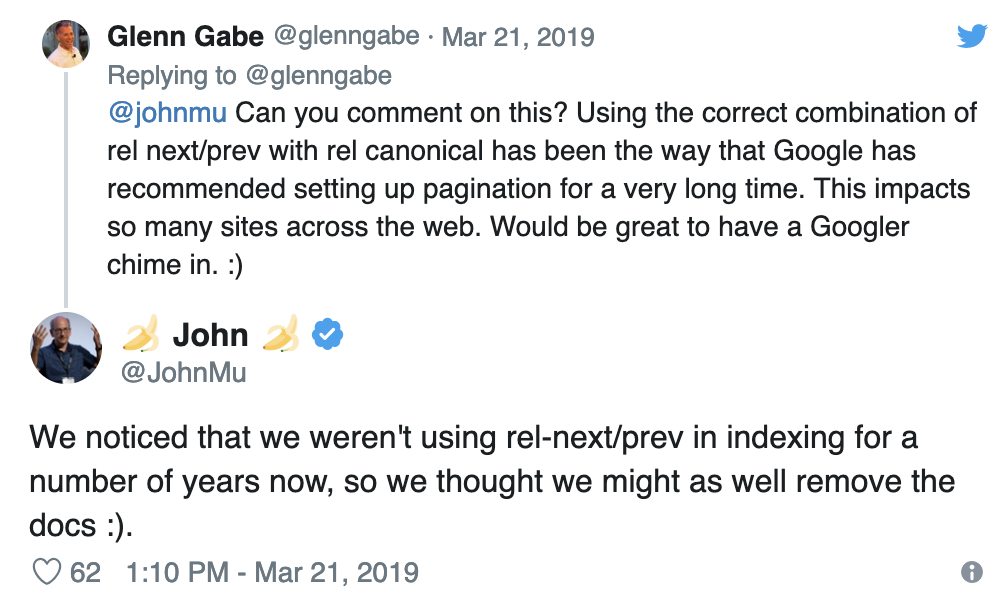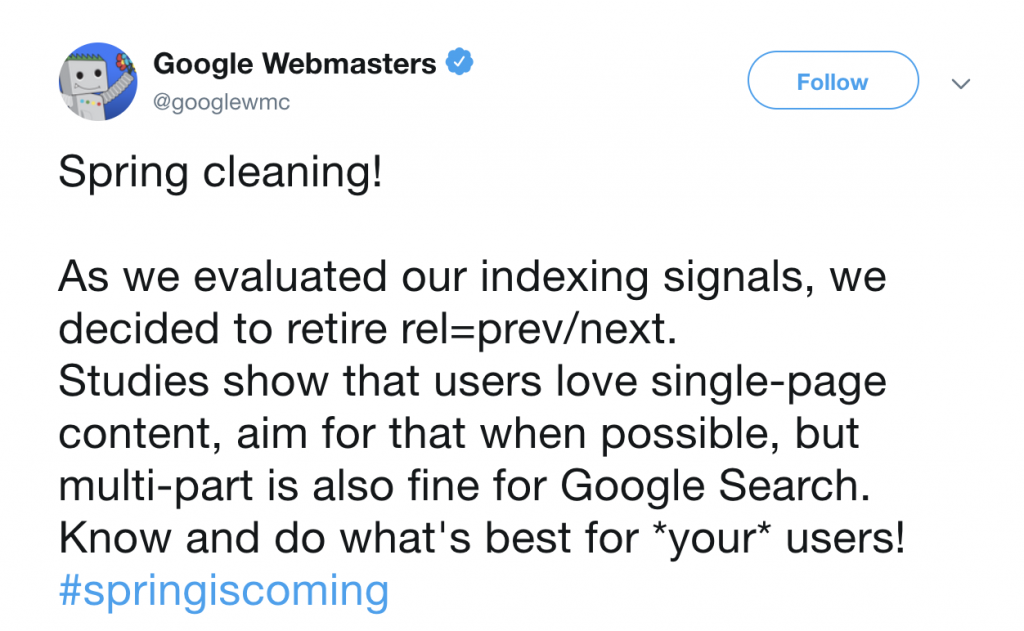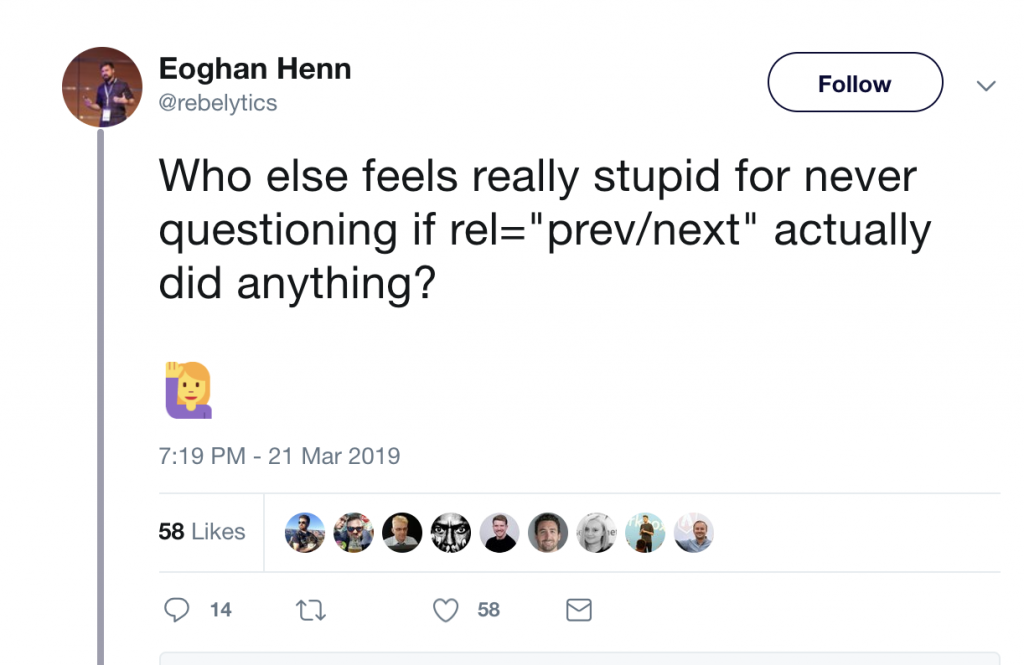3 min read
Bon Voyage to the Ordinary: Top Ecommerce Trends for Travel Brands in 2024
The travel industry is taking flight in the digital realm. As wanderlust reigns supreme, travel brands need to equip themselves with...
Yesterday Google suddenly announced that pagination tag rel=prev and rel=next will no longer be supported by Google. Once again this created a stir within the SEO community. Keep up to date with Honchō’s commentary on the latest Google updates on our blog.
Google webmaster John Mueller responded to someone with the announcement.

This was then followed by an official announcement from Google.

Google says that users prefer single page content nowadays.
Sometimes pagination makes sense. Maybe you would like to organise content. You may have a huge content piece and would like to break it up into pages. If Google no longer supports rel pagination tags, what do you do?
The solution is to not use them even with paginated content. Google bots are clever enough to understand paginated content without these tags.
If your page has obvious indications that it is paginated such as next page buttons or page number, it will be clear to the reader that the page is paginated. If it’s clear to the reader, it’s clear to Google now. Google bots can now naturally pick up and understand if a page is paginated just like a reader would.
I think the lack of transparency and the sudden announcement didn’t go down well. In the past, Google advised webmasters to use these tags. Suddenly they announce that they are not supporting them anymore with John Mueller tweeting that they have not been using them for years. There seems to be discontent with webmasters as they feel like no one has told them this for years, so essentially have been wasting resources and time by investing in pagination tags.

Google is ever changing, be sure to subscribe to our blog to stay up to date with the latest SEO, PPC and Social Media news.

3 min read
The travel industry is taking flight in the digital realm. As wanderlust reigns supreme, travel brands need to equip themselves with...

2 min read
The fashion scene is undergoing a digital makeover. With consumer habits constantly shifting, fashion brands need to adapt and embrace innovative...

2 min read
The home and garden landscape is blooming in digital. As consumer preferences evolve, home and garden businesses need to cultivate innovative...